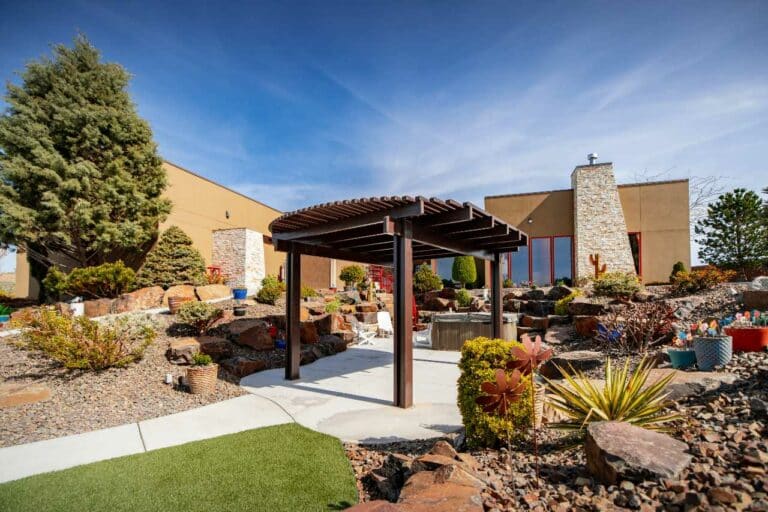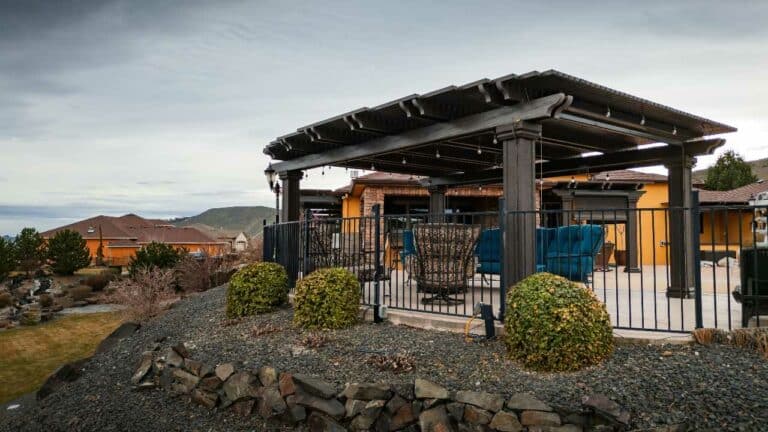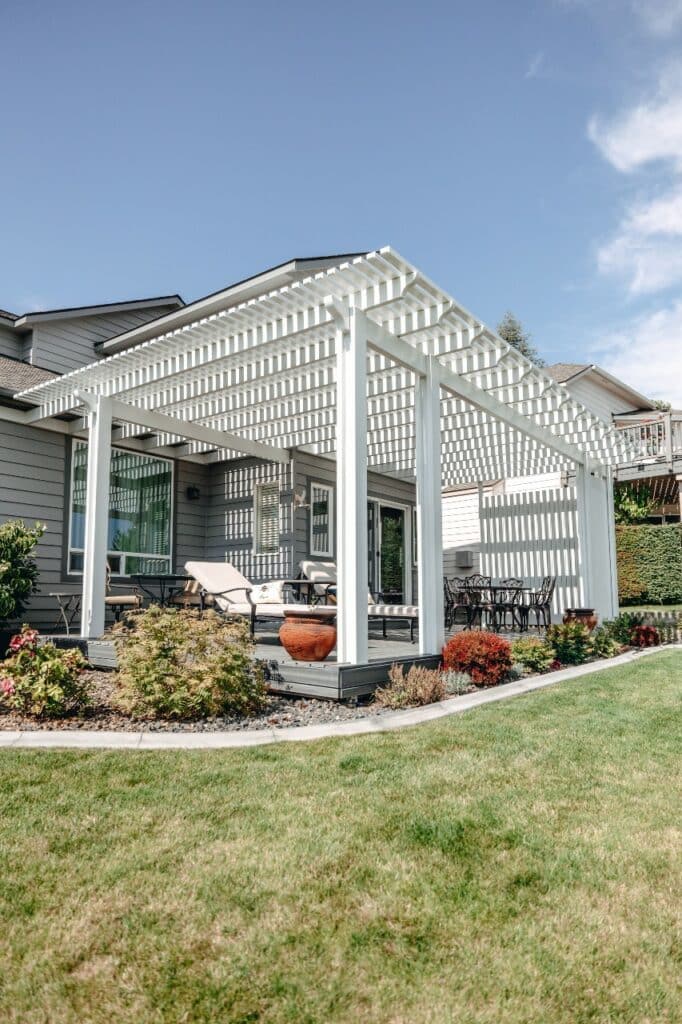
Outdoor living spaces have become increasingly popular in recent years, and it’s no surprise why. Who doesn’t enjoy spending time outside in the fresh air, surrounded by nature, enjoying the sun’s warmth? One way to enhance your outdoor living experience is by adding a pergola to your backyard or patio. Pergolas not only provide a beautiful and functional addition to your outdoor living space, but they can also increase your home’s value. However, when considering a pergola, it’s essential to consider the structure’s longevity, especially in the face of harsh weather conditions.
In this article, we will compare the longevity of a pergola versus other outdoor structures and highlight the benefits of aluminum over alternative materials.
Why Aluminum Pergola Provides Long-Lasting Outdoor Structures
With the wide variety of shade structures available, you may be wondering which type is right for your home and how long it will last. Many builders and homeowners favor pergolas due to their functionality and longevity. Unlike screen rooms or awnings that require regular cloth or screen materials replacement, pergolas are built to last.
When properly installed, pergolas tout study posts, beams, and rafters that ensure maximum stability to prevent shifting or tilting. Unlike other outdoor entertainment structures that may deteriorate and rot over time due to constant exposure to weather elements, pergolas remain sturdy and durable, providing long-lasting support for your outdoor entertainment needs.
Another reason why pergolas last longer than other outdoor entertainment structures is their design. Pergolas have a unique design that allows them to distribute weight evenly across the structure. This means that the weight of the roof and the vertical support beams are distributed evenly, which reduces the likelihood of the structure collapsing under heavy loads. Additionally, pergolas are designed to allow for proper air circulation, which helps to prevent moisture buildup and rot.
Lastly, pergolas are low-maintenance structures that require minimal upkeep. Unlike other outdoor entertainment structures that may require regular painting, staining, or sealing, pergolas can be left to age gracefully without any major maintenance needs. This is because the materials used to construct pergolas are resistant to rot, insect damage, and other common problems that plague other outdoor structures.
If you are looking for an outdoor entertainment structure that will stand the test of time, then a pergola is an excellent investment, but what material should you choose? Pergolas are commonly built with wood, vinyl, and aluminum. However, one material stands above the rest regarding durability and longevity.
Why an Aluminum Pergola is the Winner for Longevity
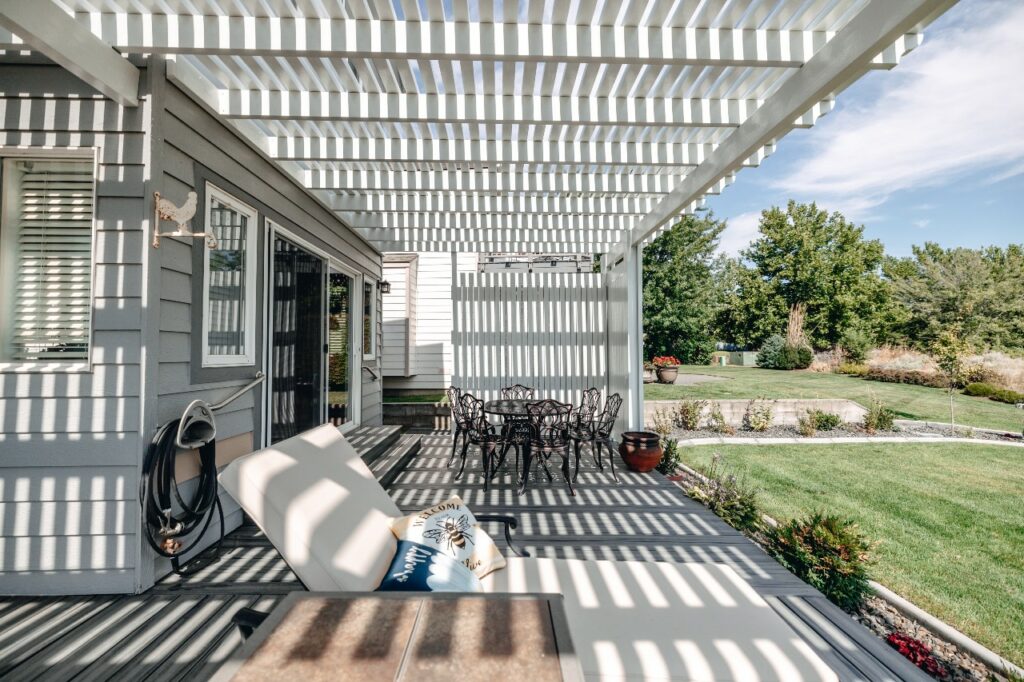
When it comes to longevity, aluminum pergolas have a significant advantage over wood pergolas. Aluminum is a durable and weather-resistant material that can withstand harsh outdoor conditions without rusting, rotting, or warping. Aluminum pergolas typically last between 20-30 years, making them a long-term investment that can withstand the test of time.
Wood is the Worst Option for Longevity
While the most popular option, wood pergolas require more maintenance and care to ensure their longevity. Wood pergolas can be beautiful, but they are more susceptible to damage from the elements. Wood can rot, warp, and crack when exposed to water, sunlight, and insects, leading to a shorter lifespan. Wood pergolas typically last between 5-15 years, depending on the wood’s quality and the care given to the structure.
Another factor to consider is the cost of upkeep. While wood pergolas may be less expensive initially, they require more maintenance and upkeep over time. The cost of staining, sealing, and repairing a wood pergola can add up over time, making it a less cost-effective option in the long run.
Challenges with Vinyl for Your Outdoor Structure
Vinyl has been making its rounds in the designs of pergolas for the past few years, but while vinyl doesn’t rot like wood, it struggles with durability in harsh temperatures. Heavy snow causes the vinyl to sag, and high temperatures can make it brittle. Since vinyl can’t be strengthened through maintenance, what you get is what you get. If you live in a region with a mild climate, you may be able to get 20+ years out of a vinyl pergola, but in areas that experience hot summers and snowy winters, you are looking at 15 years maximum.
In contrast, aluminum pergolas require minimal maintenance and upkeep, making them a cost-effective and hassle-free option for your outdoor living space. Aluminum is resistant to rust, rot, and warping, so you won’t have to worry about staining or sealing the structure to protect it from the elements. Additionally, aluminum pergolas are easy to clean and maintain, requiring only occasional washing with soap and water to keep them looking new.
Aluminum Pergolas from Patio Covers Unlimited
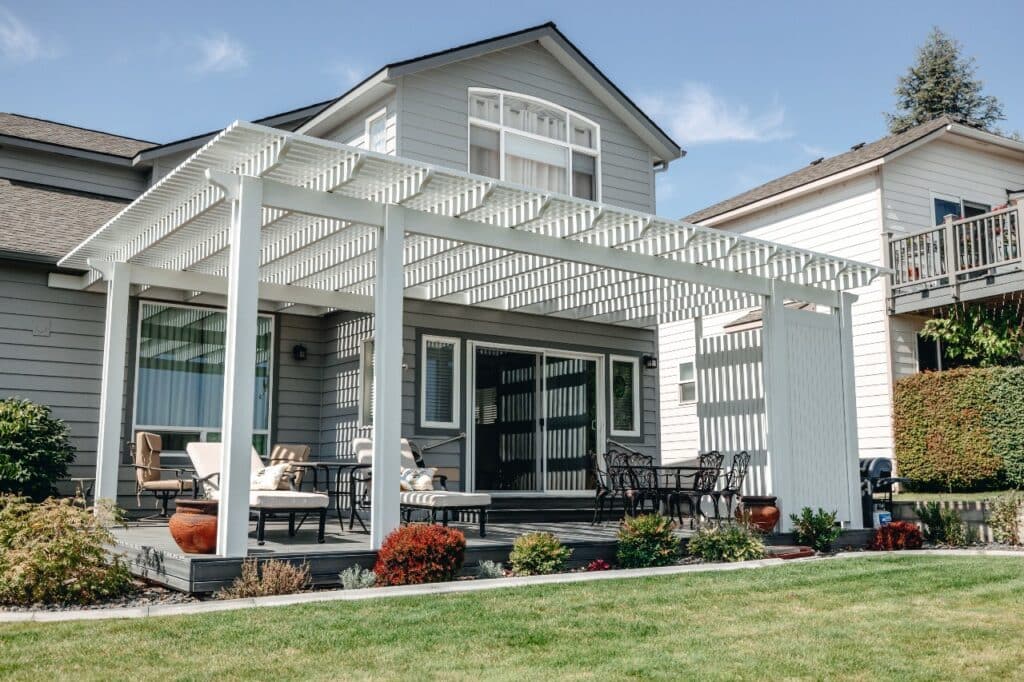
To ensure our clients get the most out of their outdoor space, we supply high-quality structures that last for decades. Unlike wood patios or DIY kits, our pergolas are both durable and luxurious in appearance, consisting of high-grade aluminum and embossed with a wood grain texture. Homeowners enjoy a maintenance-free pergola that will not crack, warp, split, chip, peel, chalk, or fade, even under perpetual wind and UV exposure. Plus, our pergolas are entirely customizable. We offer a variety of sizes, colors, and design types so you can benefit from a pergola that meets your specific needs, wants, and aesthetics.
Contact Patio Covers Unlimited NW to learn more about the benefits of an aluminum pergola installation and to schedule a free at-home consultation.
